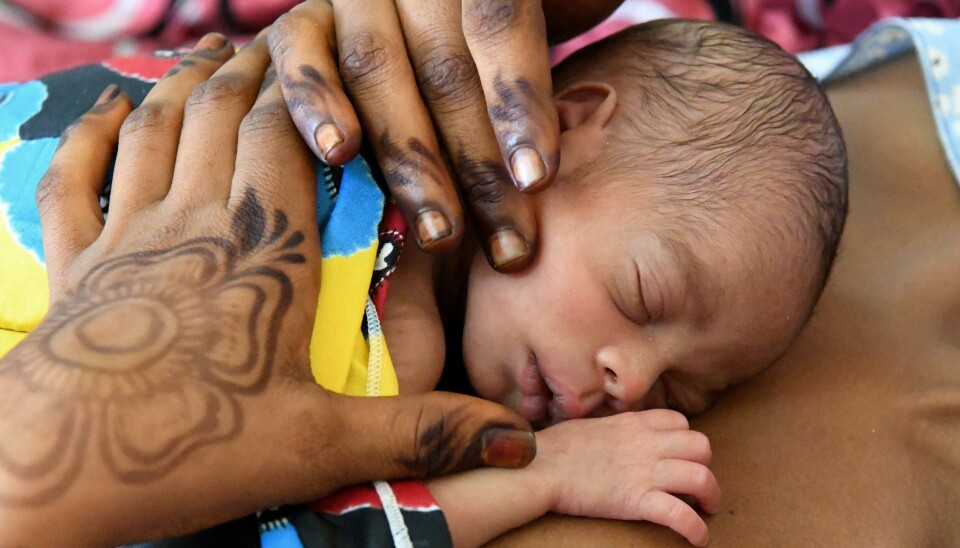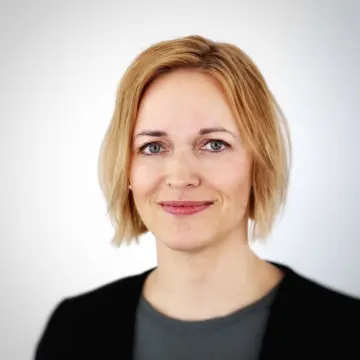THIS ARTICLE/PRESS RELEASE IS PAID FOR AND PRESENTED BY the Norwegian centre for E-health research - read more

Smartphone reminders can save mothers and children from dying
Sometimes a notification and some good advice can be enough to save the life of a mother or infant.
If society facilitates good health choices for individuals, it can be very beneficial for the health and lives of both the young and the old. Correct health information is also important for an unborn child in its mother's womb.
But how can we reach out with information in countries where women lack health services?
According to the United Nations Population Fund (UNFPA), around 800 women die every day due to pregnancy and childbirth. Statistics show that 295,000 women died in 2017. They die from preventable and manageable causes, including bleeding, complicated births and infections.
Figures from the WHO show that in 2020, 2.4 million children died in their first month of life. The statistics show that infant mortality is highest in sub-Saharan Africa and in South Asia.

Went through international research
“Fortunately, there has been a positive development in recent years. Fewer women die, more children survive in the mother's womb, during birth and in the first weeks of life. But in developing nations, many still die. Here we must contribute with new ideas and interventions,” Elvis Bossman says.
He is a former master's student at UiT The Arctic University of Norway and has carried out a systematic review of international research on mobile health solutions from 2010 to 2020.
23 studies were included: 16 from African countries and seven from South Asia.

Findings indicate that reminders and guidance through smartphones can bring positive behavioural changes among pregnant women and mothers. They can also provide valuable training for healthcare workers.
These measures can help reduce maternal and child mortality.
Health in every phone?
When smartphones came on the market, many became curious about how they can be used for health measures, including in global health work.
Mobile health solutions, m-health, are increasingly used by people in the form of apps and registration of their own information. Health workers are also interested in this.
Improving the health of mothers and children around the world is high on the agenda. The UN's Sustainable Development Goal 3 is to ensure good health and well-being. The goal consists of sub-goals and several indicators.
With an education in informatics, public health and e-health, Bossman dug deep into the statistics.
“There are many connections when we look at the indicators and how they affect each other. Maternal health, maternity care and vaccination are important, as is good information. Then there is the financing of services and the training of health personnel. And doctors and nurses should be where the need is greatest,” he says.
SMS reminders in your own language
In developing countries, there are not enough health workers to provide help and support to all citizens, and trained health personnel often relocate.
The advantage of apps and phone messages is that they are easy and cheap. With digital solutions it is not necessary to always travel and talk to a midwife or nurse face to face.
“Take, for example, a study from Zanzibar in 2014. There, pregnant women received SMS reminders to come for regular check-ups at the health centre. The messages were in their language Swahili. This meant that they picked up on danger signs during pregnancy more often and could provide better follow-up,” says Bossman.
In a study in Ethiopia from 2016, researchers tested an app to make the last part of pregnancy and birth safer. Healthcare workers were given access to animated videos in the app that provided knowledge about resuscitation of newborns.
“New studies in m-health are published every year. The authorities in many countries will be able to use the results for measures that can promote health and survival," Bossman says.
Must solve challenges concerning privacy
The gadget in people's pockets and purses can provide support and guidance. However, caution is needed when sending out messages to patients or storing their health data.
Mobile health solutions must be useful, efficient and, not least, safe.
“Privacy is very important. Some of the studies I have examined often do not take this seriously. What about access control? Who in the healthcare facility can read the patient’s information? The same applies when the person is at home,” Bossman says.
Can be expensive
Another element is costs. A pilot study is often carried out by researchers who do not always analyse the costs of the intervention.
“On the contrary, it may be the case that people who are going to try out the technology are given both a mobile phone and a prepaid subscription. Even if the result is good, people may not be able to afford to buy what they need in real life. Maybe they don't have internet or mobile data either," Bossman says.
There is also little research on the informal exchange of health information, for example between a patient and a clinician.
“Although it is not documented anywhere, we know that it happens. A person takes a picture of something and sends it to a doctor for assessment via WhatsApp or Messenger. There are knowledge gaps here that should be filled. The use of technology affects people's health behaviour,” he says.
Reference:
Bossman et al. mHealth interventions to reduce maternal and child mortality in Sub-Saharan Africa and Southern Asia: A systematic literature review, Frontiers in Global Women's Health, 2022. DOI: 10.3389/fgwh.2022.942146

This article/press release is paid for and presented by the Norwegian centre for E-health research
This content is created by the Norwegian centre for E-health research's communication staff, who use this platform to communicate science and share results from research with the public. The Norwegian centre for E-health researchis one of more than 80 owners of ScienceNorway.no. Read more here.
See more content from the Norwegian centre for E-health research:
-
When your doctor is online: People expect a reply within 24 hours
-
Technology in the health and care sector: "This is not just about new gadgets"
-
Five Nordic and Baltic countries take a major step toward the future of health research
-
A digital chatbot can help you stay fit
-
Researchers' advice for better healthcare services: Listen to the patient!
-
Half of those who received mental health care found errors in their medical records





































